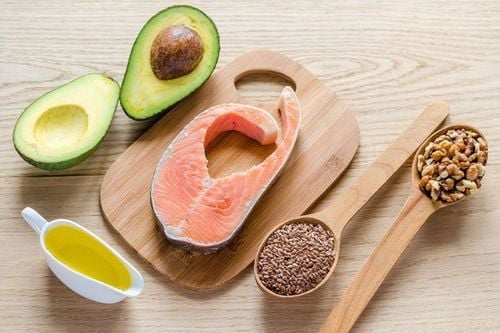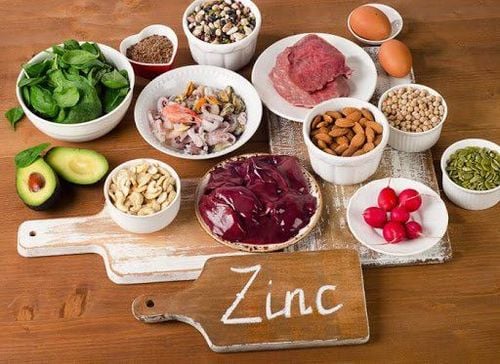A one-year-old's refusal to eat and exclusive reliance on milk is a common concern among parents. If this behavior persists, it can lead to various health problems such as nutrient deficiencies, stunted growth, and malnutrition.
1. Consequences of a one-year-old refusing to eat:
Milk is a nutrient-rich food for infants. But exclusive reliance on milk in a one-year-old toddler can lead to severe nutrient deficiencies, particularly micronutrients. Prolonged food refusal can result in delayed physical and cognitive development. Specific consequences include:
- Poor weight gain and underweight: While milk is rich in protein, calcium, and fat, toddlers require a wider range of nutrients for optimal growth. A one-year-old's refusal to eat and preference for milk may be due to rapid satiety after milk feedings, leading to a decreased appetite for solid foods. Over time, this habit can result in deficiencies in carbohydrates, fiber, and vitamins, which are present in very low or negligible amounts in milk. As a consequence, the child's nutrition, especially for micronutrients, are not adequate for overall development, resulting in poor weight gain and stunting.
- Anemia: One of the most common consequences of food refusal, relying solely on milk is anemia. Milk is low in iron, making iron deficiency anemia almost inevitable if iron supplements are not provided. Children with iron deficiency anemia often exhibit symptoms such as fatigue, frequent vomiting, pallor, and lethargy. Impaired blood circulation due to anemia can negatively impact brain development, especially during the critical 1-3 years age range when the brain undergoes rapid growth. Therefore, it is essential to supplement iron through foods like beef and seafood.
- Constipation: Infants of 1 year old who are picky eaters and only drink milk are at high risk of developing constipation. Because milk, especially formula, is very low in fiber, it hinders the digestive system, easily causing indigestion and bloating, leading to constipation over time.
- Rickets: Although milk is rich in calcium, for strong bones and proper height growth, children need additional nutrients such as protein, vitamin D, zinc, and magnesium. These substances not only contribute to bone formation but also enhance calcium absorption. Rickets is a severe consequence of being on a milk only diet, and it can occur even in overweight children.

2. How to prevent a 1-year-old from refusing to eat
A common question among parents is, "What should I do if my baby refuses to eat?. To prevent this issue, it's important to establish healthy eating habits from infancy.
- Once infants have transitioned from pureed foods and are 10 months or older, their bodies require a more diverse range of nutrients from various food sources.
- Daily meals should provide all four essential macronutrients: carbohydrates (found in rice, potatoes, corn, whole grains,...), proteins (found in meat, fish, milk, eggs, shrimp, crab, beans), fats (from animal fats like pork, fish, or plant-based oils like peanut oil, olive oil, sesame oil), vitamins and minerals found in fruits and vegetables.
- Fat supplementation is crucial at this stage as it aids in the absorption of fat-soluble vitamins (A, D, E, K).
- Feeding a child serves not only to provide nutrients but also to stimulate taste buds, increase digestive enzyme secretion, and refine chewing skills.
- Milk should be included in the daily diet to support bone and brain development. Milk, even fortified milk, should not replace other foods.

The first year of life is a critical period when special attention should be paid to nutrition as the child's body is still developing.. If a child refuses to eat and only drinks milk, it can directly impact their development. To manage the issue of a 1-year-old refusing to eat, parents should:
- First, it is necessary to limit the daily milk intake for children. The daily milk intake depends on the child's age, for example, a 1-year-old child should only drink about 500-600 ml of milk per day (divided into 2 times/day).
- It is important to understand the principle of giving milk to children.
- Absolutely do not give milk before meals as it will make the child feel full and lose their appetite.
- At this age, children should continue breastfeeding, combined with nutritious meals to ensure physical and intellectual growth.
- The daily diet must ensure a full and balanced intake of the following four food groups: carbohydrates (100-150g) such as porridge, soft rice from porridge; protein (100-120g) from eggs, meat, fish, eggs, cooked in a soft form, cut into small pieces for the child to chew and swallow more easily; fat (25-30g) from animal fat, vegetable oil, yogurt, cheese; fiber (50-100g) and minerals (150-200g) from fruits and vegetables.
- The amount of food can be slightly increased or reduced depending on the child's appetite.
- Food must be fresh and varied.
- Cooking and seasoning should not contain too much sugar or salt.
- Change the menu for your child every day.
- Meals should be colorful and visually appealing.
- Give your child snacks such as yogurt, cheese, and fruit. These are foods that children love and also stimulate their taste buds.
In conclusion, milk is a nutrient-rich whole food, but it is not healthy when it induces picky eating in children, especially 1-year-olds who refuse to eat anything but milk. Therefore, to ensure that children develop holistically in terms of both physical and intellectual growth, parents need to provide a balanced and scientific diet, combining a variety of foods. In addition, children also need to be supplemented with essential micronutrients such as: Zinc, selenium, chromium, vitamins B1 and B6, ginger, acerola extract (vitamin C),... to improve taste, 1 stimulate appetite, achieve standard and above-standard height and weight, boost the immune system, reduce minor illnesses, and improve digestion.
For children with prolonged picky eating, poor absorption, and delayed development, parents should supplement their diet with products containing lysine, essential micronutrients and vitamins such as zinc, chromium, selenium, and B vitamins to fully meet their nutritional needs. These essential vitamins also support digestion, enhance nutrient absorption, improve picky eating, and stimulate appetite. Parents can provide supplements by adding specific foods to the child’s diet and with naturally-derived supplement products for better absorption. It is important to note that improving these symptoms often takes time. Combining multiple supplements at once or frequently changing them can overwhelm the child's digestive system. Therefore, parents need to be consistent and regularly visit vinmec.com for helpful child care information.
LaminKid I Health Supplement:
This product is used to supplement vitamins and minerals for the body. It supports digestion, enhances nutrient absorption, and helps children eat better. It supports the enhancement of the child's immunity, helping to reduce the risk of diseases such as upper respiratory tract infections and colds.
Target users:
Children who are picky eaters, have poor food absorption, emaciated, malnourished, and have developmental delays.
- Children with weak immunity, who are currently sick or have just recovered, and children who frequently suffer from upper respiratory tract infections and colds.
Responsible for product quality:
Elepharma Pharmaceutical Joint Stock Company
No. 9, Truong Cong Giai Street, Group 17, Dich Vong Ward, Cau Giay District, Hanoi City, Vietnam
(Tel) 1800 6091; (E) info.elepharma@gmail.com
For more information about the product, please visit: https://i.vinmec.com/laminkid
Register for nutritional counseling for your child at: https://i.vinmec.com/dangkytuvandinhduong













